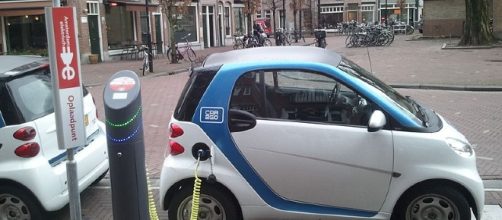One of the complaints about electric cars, and, to some extent, Handheld devices is that the lithium-ion batteries that are used to power them take a long time to charge. Depending on the make and model of the vehicle and other factors it may take anywhere from thirty minutes to 12 hours.
Apparently, the long time it takes to charge Electric Cars limits their usefulness. Considering their short range compared to gasoline or diesel vehicles, this factor relegates them to commuting to and from work or other destinations in the same city and then charging them at home overnight.
However, some new research at Rice University may change that limitation.
Extending battery life with asphalt
ZME Science is reporting that Rice researchers led by a chemist named Jason Tour took untreated gilsonite, a porous carbon made from a derivative of asphalt, mixed it with carbon nanoribbons, coated it with lithium metal, and made the battery’s anode from the resulting material. Experiments with the improved battery showed that it took just five minutes to charge as opposed to two hours.
Using asphalt-derived carbon solves a problem that had previously prevented the development of a lithium metal battery called dendrite formation. Dendrite is a mossy deposit that eventually causes the battery to short circuit, and, in some cases, explode.
Manufacturing the new type of battery is said to be a simple matter, meaning that they may well be commercially viable right out of the laboratory.
The future of electric cars
The Rice University innovation may well change the future of electric vehicles. Now, someone can take an electric car on a road trip. The ability to recharge electric vehicles in minutes means that one can stop by a charging station, hook up, top off the car battery system, and be on their way. The experience will be no more inconvenient than a visit to a service station, or a convenience store is currently.
Of course, the other innovation would extend the capacity of batteries so that the range of cars they power would increase when compared to standard fossil fuel vehicles.
Then, the future of electric vehicles would be assured, and the days of gasoline or diesel vehicles would be numbered.
No more dead phone anxiety
Everyone who owns a smartphone has had dead phone anxiety. Charging a smartphone can take some time, hours in most cases. If one is on-the-go and suddenly discovers that one’s phone is running out of battery, the fright can be breathtaking. However, putting a phone on the charger for an hour or two can be inconvenient as well. If the process takes just five minutes, the bother of recharging goes away.


